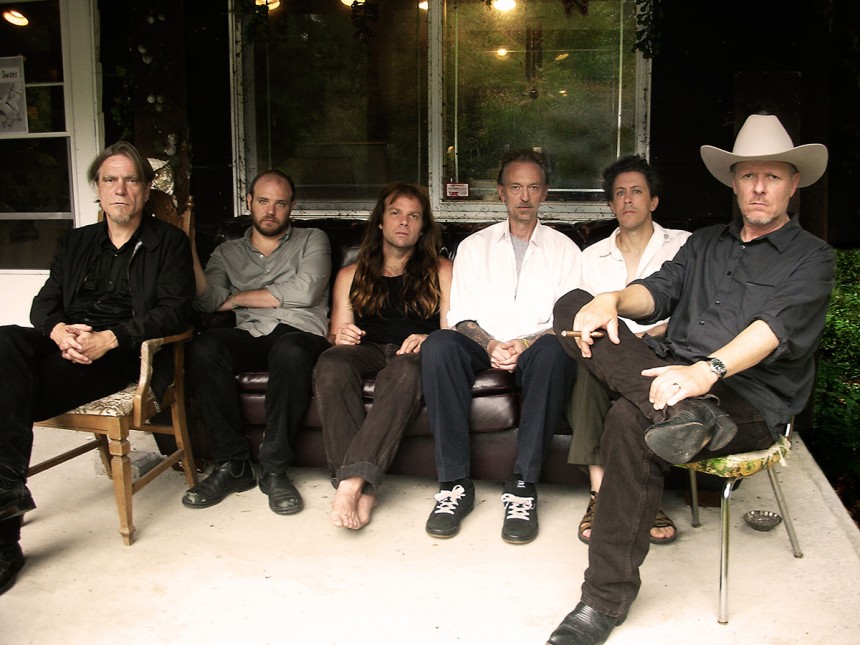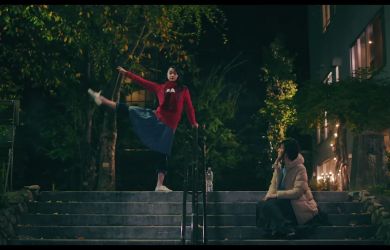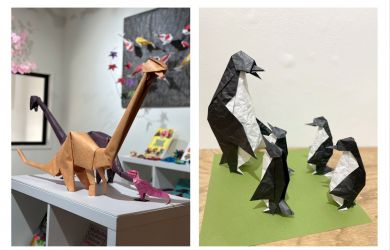
Metropolis heard from Michael Gira, founder of influential New York rock outfit Swans, on reuniting his uncompromisingly progressive band after 30 years, and their latest album To Be Kind.
Where do we catch you?
I’m at home a little north of New York City. I’m doing interviews today with Singapore, China, Japan and Australia.
Are some of these new territories?
China and Singapore, and we’re also playing Tasmania for the first time.
When was the last time you were in Japan?
Last year, but I don’t have much to recount. I find Japan extremely alien, but it’s quite beautiful—I enjoy it. We played a good show there, I believe, but the shows blend together. We play about 200 a year.
Tell us about any Japanese music that’s influenced you.
I don’t believe any has.
Japan has an active experimental music scene. Do you feel any kinship?
With me, it’s not an apt question because I don’t really listen to much music. I’ve been making records since 1982, and have followed my own path. Any influences that existed then are long gone. The main influences now on Swans are Swans finishing a record, and finding things that can be utilized to move forward and keep making vital and interesting music.
What makes music interesting to you?
It’s indefinable. It’s mainly a rejection of things that have been used up, and what’s left to pursue.
People describe your music as experimental. What do you make of that?
I think it’s a ridiculous term. As I say, Swans follows its own path. It’s not pop or even ordinary rock music, and that’s why people term it experimental—because it’s so different. But we do not try to be deliberately experimental; I just start to make music and follow where it leads.
Is it an improvisational process?
I write songs. Then I bring them to the group of musicians who do my work. Then we start to expound upon them, and they take on a new shape that way. And often on stage, they push things into new directions. I don’t know if you could call it improvising; it’s more following the thread of what’s going on.
Tell us about the process of creating To Be Kind and how it evolved on previous efforts.
That record’s material was mainly developed on stage. I would bring an idea to soundcheck, and then we’d start working on it, then we’d play it in front of an audience, and gradually it would expand and become a piece on the record. Some of the pieces are songs, I wrote on guitar and we orchestrated, but most of the album was developed live.
How does developing a song in front of an audience compare to writing a song at home?
It’s completely different. It’s not really about audience feedback, it’s about the urgency of having the audience there. It’s an entirely new way of working for me, and it’s proven to be very fruitful in this iteration of Swans.
Why did you feel it was the right time to reform the band a few years ago?
Two reasons. The first was I had been doing this project called Angels of Light for 12 years, and I was dissatisfied with the direction that music was going. I was searching for something new that would be urgent and vital, and I thought, why not revive Swans and see if I could push it in new directions? And that proved to be very fruitful. The other reason was that I needed to tour and get out there and start making an income again. But I didn’t want to revive Swans and do a nostalgia thing. It’s all new music moving in a new direction, and fortunately we’ve received a welcome response.
In the intervening years, major forces have reshaped music. Tell us about bringing Swans back to a transformed environment.
I’d been involved in music all along through my record label Young God, so I’d been engaging with the so-called music industry and was well aware of the technological and social changes. But I don’t think about that when I’m making music—I don’t tailor it to the current environment.
200 shows is a lot. How do you approach each show to make it unique?
The music is always open to change. In fact, it’s rapidly evolving and always on the edge of failure, which keeps it interesting. And things never stay the same. We might start out with a set that is putatively the same material as the beginning of the year, but has changed almost entirely.
Is the band working on new material?
Our set is currently comprised of about 85 percent new material. It’s enough for an album, and I’m also writing more songs on acoustic guitar. We’re planning to record by the end of this year.
Could you describe one new song?
Absolutely not.
Is there some new direction you’re traveling in?
It’s hard to describe. We’re pursuing a very strange area of music now—I can only describe it as “clouds of sound.”
Shibuya O-East. Jan 27, 7pm. Nearest station: Shibuya. Tel: 03-3444-6751.





